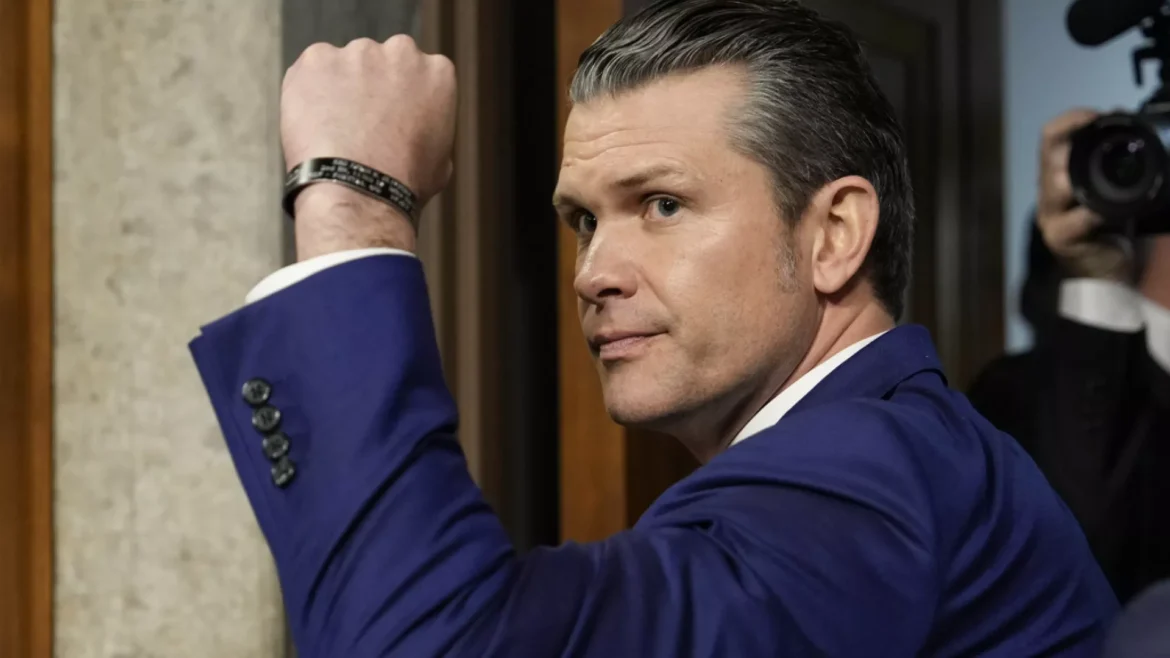In a historic and deeply polarizing move, the U.S. Senate confirmed Pete Hegseth as Secretary of Defense late Friday, following a dramatic 50-50 tie that required Vice President JD Vance to cast the deciding vote. The confirmation has sparked heated debates across the political spectrum, highlighting the challenges and complexities of placing a controversial figure at the helm of the Pentagon.
Hegseth, a combat veteran of the Army National Guard and a former Fox News host, has faced extensive criticism during his confirmation process. Allegations of heavy drinking, aggressive behavior toward women, and contentious remarks about women’s roles in the military have cast a long shadow over his nomination. Despite these concerns, the Republican-led Senate pushed his confirmation through, with key GOP leaders rallying behind his vision to restore what he calls a “warrior culture” to the Department of Defense.
The confirmation process was marked by an unusually high level of tension and partisanship. While cabinet nominees for defense secretary typically receive broad bipartisan support, Hegseth’s nomination exposed deep rifts within the Senate. Republican Senators Lisa Murkowski, Susan Collins, and Mitch McConnell joined Democrats in opposing the nomination, citing serious doubts about Hegseth’s qualifications and temperament. McConnell, a veteran Republican leader, voiced sharp skepticism, stating that a nominee for such a critical role should be “an immediate asset, not a liability.” Despite their opposition, Senate Majority Leader John Thune and other Republicans defended Hegseth’s military background, arguing that his combat experience in Iraq and Afghanistan uniquely qualified him to lead the Pentagon during a time of global uncertainty.
Vice President JD Vance’s tie-breaking vote underscored the political stakes surrounding Hegseth’s confirmation. The move is only the second time in U.S. history that a vice president has been required to break a tie for a cabinet nominee. The contentious nature of the vote reflects the broader cultural and ideological battles reshaping U.S. defense policy under the Trump administration.
Hegseth’s confirmation has not only intensified partisan divisions but also raised questions about the direction of the Pentagon under his leadership. Critics have voiced alarm over his lack of high-level administrative experience, as well as allegations of misconduct that continue to dog his public image. During the confirmation hearings, Hegseth faced a barrage of questions about allegations that he sexually assaulted a woman at a Republican conference and was abusive toward his second wife, allegations he has consistently denied. His fiery defense, in which he dismissed the accusations as part of a “smear campaign,” did little to sway critics. Many Democrats argued that confirming Hegseth sends a troubling message about accountability and leadership standards within the U.S. military.
Supporters of Hegseth, however, see him as a disruptor who will challenge what they perceive as bureaucratic inefficiencies and “woke distractions” at the Pentagon. Senate Majority Leader John Thune praised Hegseth’s commitment to modernizing the military and prioritizing combat readiness. “Gone will be the days of woke distractions,” Thune declared, signaling a sharp pivot from diversity and inclusion initiatives toward a more traditional focus on warfighting. Hegseth’s critics, however, argue that his views could alienate key segments of the military, including women and minority groups, potentially undermining unit cohesion and morale.
The controversy surrounding Hegseth’s confirmation is emblematic of the Trump administration’s broader approach to governance, which prioritizes loyalty and ideological alignment over bipartisan consensus. President Trump celebrated the confirmation as a victory, dismissing dissent within his own party. “We have a great Secretary of Defense, and we’re very happy,” Trump said, brushing aside opposition from Republican stalwarts like McConnell. The president’s ability to secure Hegseth’s confirmation despite widespread criticism underscores his enduring influence within the GOP and his willingness to defy conventional norms in pursuit of his agenda.
Hegseth’s appointment comes at a critical time for the Pentagon, which faces a range of complex challenges, from countering Chinese and Russian aggression to managing ongoing conflicts in the Middle East. As Secretary of Defense, Hegseth will oversee an organization of 2.1 million active-duty service members, nearly 800,000 civilian employees, and a budget of over $800 billion. His ability to navigate these challenges while addressing concerns about his leadership style will likely define his tenure.
The implications of Hegseth’s confirmation extend beyond the Pentagon, reflecting broader shifts in U.S. political culture. The partisan battles over his nomination highlight the growing influence of cultural and ideological divisions in shaping national security policy. For many, Hegseth’s confirmation represents a broader struggle over the future of the military and its role in a rapidly changing world.
Observers will be closely watching how Hegseth handles his new role, particularly as he faces the daunting task of rebuilding trust within the ranks of the military and with international allies. His promise to bring a “warrior culture” to the Pentagon will likely resonate with some but alienate others, creating both opportunities and challenges as he seeks to implement his vision. Whether he can deliver on his promises while addressing the deep concerns surrounding his appointment remains to be seen.
The confirmation also sets the stage for additional contentious battles over President Trump’s cabinet appointments. With several high-profile nominations, including Kash Patel for FBI Director and Tulsi Gabbard for Director of National Intelligence, still awaiting Senate approval, the administration is poised to continue testing the limits of partisan loyalty and institutional norms.
In the meantime, Hegseth’s confirmation marks a turning point for the Pentagon and the nation’s military leadership. As the new Secretary of Defense, he carries the weight of expectations from both supporters and critics, as well as the immense responsibility of safeguarding U.S. national security in an era of unprecedented challenges.
For in-depth analysis of global defense strategies, cutting-edge technology trends, and the impact of leadership changes on national security, subscribe to Innovation Times at www.innovationtimes.com. Stay informed with the latest insights from top experts in innovation, leadership, and global affairs.



